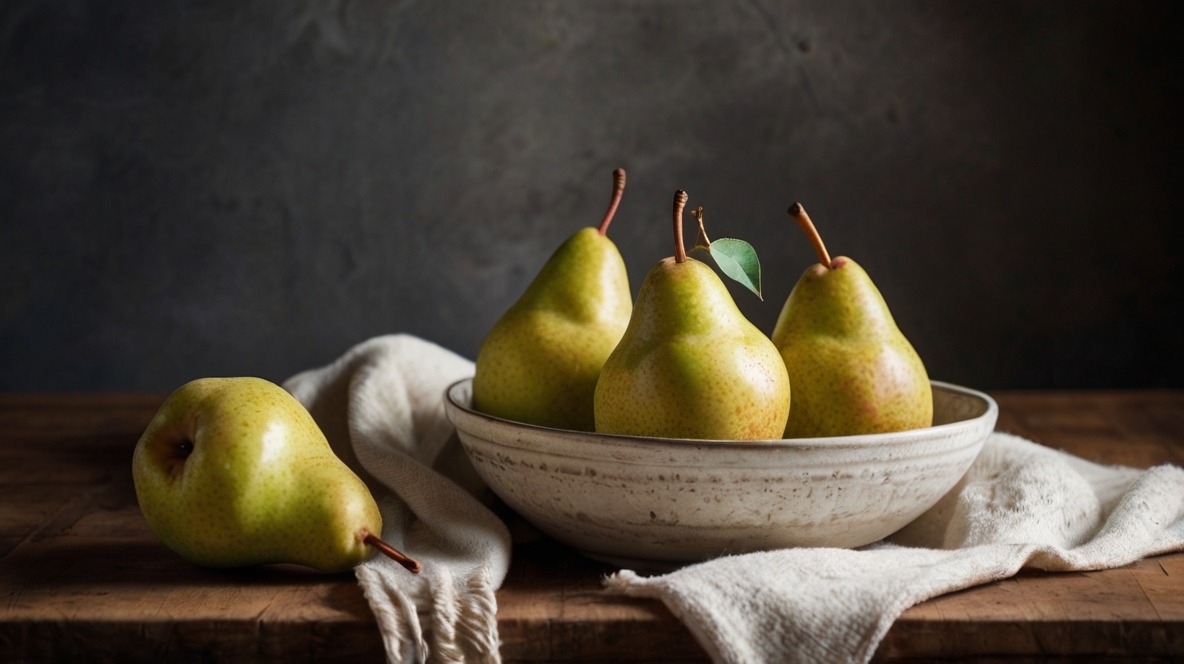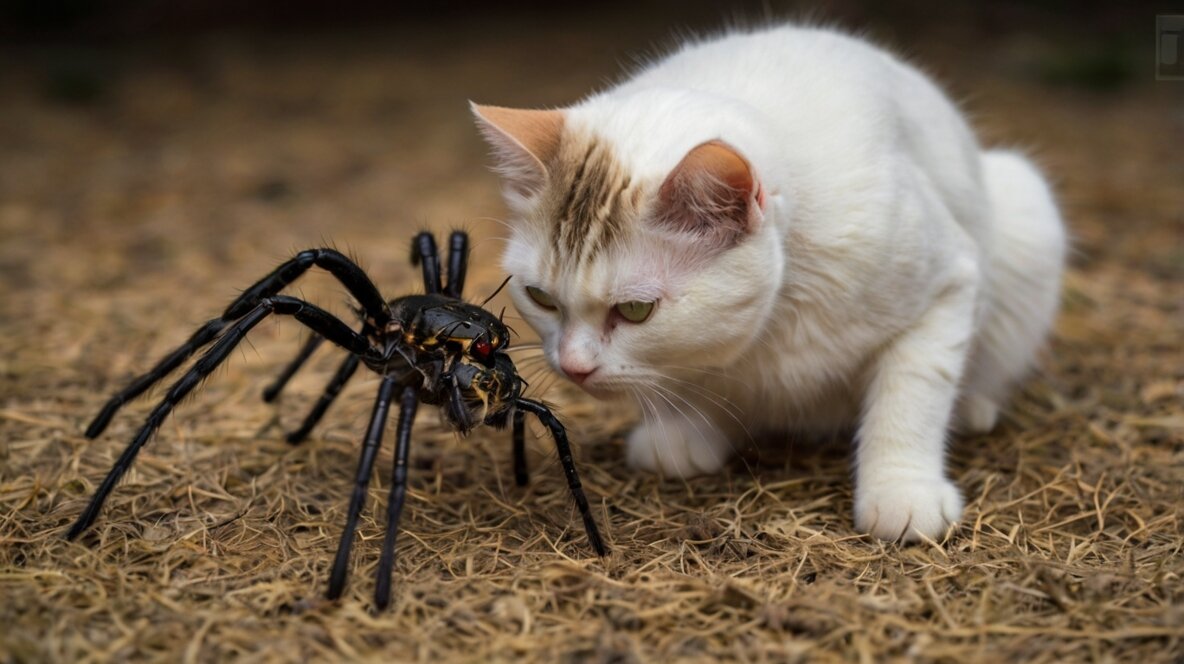When it comes to feeding our feline friends, many of us wonder if sharing some of our favorite fruits with them is a good idea. Cats, being obligate carnivores, primarily need meat in their diet, but what about the occasional treat? Specifically, can cats eat pears? In this article, we’ll dive into the nutritional benefits and risks associated with feeding pears to cats, helping you make informed decisions about your pet’s diet.
Table of Contents
Understanding a Cat’s Dietary Needs
Cats and Pears: Before we talk about pears, it’s essential to understand what cats naturally require in their diet. Cats are obligate carnivores, meaning their bodies are designed to thrive on a diet rich in animal proteins. They rely on meat to obtain essential nutrients like taurine, arachidonic acid, and vitamins A and D, which are not sufficiently available in plant-based foods.
While cats occasionally consume plant material in the wild, it’s usually in small amounts and often comes from the stomach contents of their prey. Therefore, fruits and vegetables are not a significant part of their natural diet. However, some fruits can be offered in moderation as treats.
Can Cats Eat Pears?
The short answer is yes, cats can eat pears. Pears are non-toxic to cats and can be offered as an occasional treat. However, it’s important to remember that just because food is safe for cats doesn’t mean it should be a regular part of their diet. Cats have different nutritional needs than humans, and what might be healthy for us isn’t always suitable for them.
Many pet owners wonder if feeding their cats fruits like pears can offer nutritional benefits. While there are some advantages, it’s also crucial to consider the potential risks.

Nutritional Composition of Pears
Pears are packed with nutrients that are beneficial to humans, but what about cats? Let’s break down what pears have to offer:
- Vitamins: Pears are a good source of vitamins such as Vitamin C and Vitamin K. While cats can produce their Vitamin C, a little extra from fruits won’t harm them. Vitamin K is crucial for blood clotting, but it’s also naturally abundant in a carnivorous diet.
- Fiber: Pears contain dietary fiber, which can aid in digestion and help prevent constipation. However, cats don’t need as much fiber as humans, so moderation is key.
- Antioxidants: The antioxidants in pears, such as flavonoids, can help combat oxidative stress, which is beneficial for overall health.
- Low-calorie Content: Pears are low in calories, which makes them a better option than other high-calorie treats. This is particularly beneficial for overweight cats.
Potential Benefits of Pears for Cats
Although pears aren’t necessary for a cat’s diet, there are a few potential benefits to offering them in small amounts:
- Hydration: Pears have a high water content, which can help keep your cat hydrated, especially if they are not drinking enough water.
- Digestive Health: The fiber in pears can support your cat’s digestive system, aiding in regular bowel movements.
- Overall Well-being: The antioxidants and vitamins in pears can contribute to your cat’s overall health, though the benefits are minimal compared to what they get from a balanced meat-based diet.
Risks Associated with Feeding Pears to Cats
While pears are safe in moderation, there are some risks to be aware of:
- Digestive Issues: Too much pear can cause digestive upset in cats, leading to symptoms like diarrhea or vomiting. Cats have a sensitive digestive system, and introducing new foods should be done gradually.
- Sugar Content: Pears contain natural sugars, which, although lower than many other fruits, can still contribute to weight gain or even diabetes if fed in excess.
- Choking Hazard: Pear seeds and the tough core can be a choking hazard. Additionally, the seeds contain small amounts of cyanogenic compounds, which can be toxic if ingested in large quantities.
- Allergic Reactions: Some cats may have allergies or intolerances to certain fruits, including pears. Always monitor your cat after introducing any new food.
How many pears Should You Feed Your Cat?
If you decide to give your cat pears, it’s important to do so in moderation. A small slice or two, depending on your cat’s size, is sufficient. This should only be done once in a while, as an occasional treat rather than a regular part of their diet. Always watch for any signs of overfeeding, such as diarrhea or lethargy, and stop feeding pears if these occur.
How to Safely Prepare Pears for Cats
Preparation is key to ensuring that Cats and pears are safe for your cat to eat:
- Choose the Right Pear: Select a ripe, fresh pear. Overripe or underripe pears can be harder for your cat to digest.
- Wash and Peel: Thoroughly wash the pear to remove any pesticides or chemicals. It’s also a good idea to peel the skin to avoid potential digestive issues.
- Remove Seeds and Core: Make sure to remove the seeds and core completely, as these parts can be harmful to your cat.
- Serve in Small Pieces: Cut the pear into small, manageable pieces or mash it into a puree to make it easier for your cat to eat.
Signs Your Cat Might Not Tolerate Pears
If your cat is new to pears, it’s important to watch for signs of intolerance or allergy. These can include:
- Digestive Upset: Vomiting, diarrhea, or changes in stool consistency.
- Behavioral Changes: Unusual lethargy, agitation, or refusal to eat.
- Consult a Veterinarian: If any of these symptoms appear, it’s best to stop feeding pears and consult your vet.
Alternatives to Cats and Pears:
If pears aren’t suitable or your cat doesn’t like them, other fruits can be offered in moderation:
- Apples: Without seeds and core, apples are another safe fruit for cats.
- Blueberries: These are small, low in sugar, and packed with antioxidants.
- Cantaloupe: This fruit is hydrating and most cats enjoy its sweet taste.
Each of these alternatives to cats and pears offers different nutritional benefits, but they should still be given sparingly.
Common Myths About Cats and Fruits
There are several myths surrounding cats and Pears fruit consumption:
- Myth 1: All Fruits Are Bad for Cats: While it’s true that not all fruits are safe, some, like pears, can be beneficial in small amounts.
- Myth 2: Fruits Can Replace Meat in a Cat’s Diet: Cats need meat to survive. Fruits should never replace the primary protein source in their diet.
- Myth 3: Sugar in Fruits Is Harmful in Any Amount: While it’s important to limit sugar, the small amounts found in occasional fruit treats are generally safe.
Expert Opinions on Feeding Cats and Pears
Veterinarians generally agree that while pears can be safe for cats in small amounts, they should not replace the essential nutrients that cats get from their regular diet. Some animal nutritionists suggest offering fruits like pears only if your cat enjoys them and has no adverse reactions.
Scientific studies on feline diets highlight the importance of a protein-rich diet but also suggest that occasional fruits can be a part of a balanced treatment routine, provided the fruit is non-toxic and given in moderation.
Personal Stories: Cats and Pears
Many cat owners have experimented with feeding their cats and pears. Some cats take to the taste immediately, enjoying the sweetness and texture, while others may be indifferent or even dislike it. One cat owner shared that their cat loved small slices of pear, which they offered as a reward during grooming sessions. Another mentioned that their cat had a mild upset stomach after eating pear, so they decided not to continue.
These personal experiences highlight the importance of observing your cat’s reaction and adjusting their diet accordingly.
Conclusion
In summary, Cats and pears: pears can be a safe and enjoyable treat for cats when given in moderation. They offer some nutritional benefits, such as hydration and fiber, but they are not a necessary part of a cat’s diet. Always prepare pears properly by washing, peeling, and removing seeds before offering them to your feline friend. Monitor your cat for any adverse reactions and consult with your veterinarian if you have any concerns. Remember, the key to a healthy cat is a balanced diet that prioritizes their need for animal-based proteins, with fruits like pears being an occasional treat.
FAQs
- Can pears replace cat food?
- No, pears should never replace cat food. They can be offered as a treat but lack the essential nutrients that cats need from their regular diet.
- What fruits are safe for cats other than pears?
- Apples, blueberries, and cantaloupe are a few examples of fruits that are safe for cats in small amounts.
- Is it okay to feed canned pears to cats?
- It’s best to avoid canned pears as they often contain added sugars and preservatives that are not suitable for cats.
- What should I do if my cat eats too many pears?
- If your cat has consumed too many pears, monitor them for signs of digestive upset, such as diarrhea or vomiting. Contact your veterinarian if symptoms persist.
- Are there any fruits that are dangerous for cats?
- Yes, some fruits like grapes, raisins, and citrus fruits can be toxic to cats and should be avoided entirely.



